- Home
- J. Robert Kennedy
The Lazarus Moment Page 2
The Lazarus Moment Read online
Page 2
“What is it? What message do you have for me?”
The man said nothing, instead staring into Khomenko’s eyes, the reluctance clear.
He shook him.
“Snap out of it!”
The man suddenly nodded, firming up his stance. “Yes, sir! Sorry, sir! Sir, I regret to inform you that a bomb dropped by a Ukrainian jet hit your apartment building. Your wife and child were trapped inside and are believed—”
The room shook as a shell slammed into the outer wall, the explosion pulverizing the concrete into dust as they were all tossed across the room. Screams filled the confined space, one particularly loud, Khomenko wishing the man would shut the hell up. He was about to order him to do so when he realized it was coming from him.
He looked down at the source of the excruciating pain and saw a large piece of shrapnel embedded in his thigh, the bloody pulp of his upper leg like nothing he had ever seen, his war rarely giving him the up-close view those truly on the front lines experienced all too frequently.
“General!” Orlov pushed himself to his feet, the man covered in dust and what appeared to be minor cuts and bruises. Khomenko tried to speak but couldn’t, instead blacking out as someone tried to lift him to his feet before another shell finished them.
Though if he could speak, he would be shouting for them to leave him, there nothing left to live for now that his wife and daughter were dead.
James S. Brady Press Briefing Room, The White House
Washington, DC
Three weeks before the Air Force One crash
“Is this in response to the growing reports of Russian offensive weapons being used?”
White House Press Secretary Terri Talevich turned slightly to make eye contact with the CBS reporter who had asked the question. She had known going into today’s press briefing that the questions would be fast and furious, the announcement provocative. She didn’t envy the President. World leaders were certain to be making phone calls today, especially his Russian counterpart. Anything involving Russia sent the vultures in front of her into a frenzy, a rabid pack of wolves tearing at the meat of any story that might lead to more violence to fill their pages and screens.
Sometimes I hate this job.
She couldn’t really blame them. It was their job, though she felt the press today were no longer about the news, but about the commentary. Everyone had their political slant, tainted their reporting with their own opinions, sometimes so much so that it was impossible to know what was the truth and what was what the reporter wanted to be the truth.
Yet one thing would never change.
The press loved a good story.
And they loved the new Russia.
Because they loved a good villain.
And they were tired of terrorists. The newly resurgent Russia, the newly belligerent Russia, made for good press whenever their leader did something aggressive or bombastic. In America, he’d be laughed out of office; in Russia, they wrote songs about him.
At least I hope he’d be laughed out of office.
“Clint, as you know, the White House has made its position clear. Russia must honor its commitments to remain out of the Ukrainian conflict except for humanitarian purposes. Offensive weapons hardly qualify as humanitarian aid.”
“But it’s clear that they aren’t keeping to their agreement. Is the President’s announcement to lift restrictions on foreign capital transfers to Ukrainian controlled accounts a response to that problem?”
Of course it is.
“I’m not clear on what you mean?”
Clint Rogers, a fixture on the White House scene for two decades, smiled at her. “Come on, Terri, you know what I mean. Is President Starling inviting private citizens and organizations to provide funding for black market weapons purchases?”
Bingo!
“Of course not. The President remains committed to a peaceful resolution to the civil war. To that end, he has repeatedly insisted that the Russians honor their commitment to remain neutral in the conflict, and that only humanitarian aid and defensive weapons be permitted to enter the conflict zone. The lifting of these restrictions is merely to allow the money to flow more freely to the victims of this conflict. The current structure of trying to control the money by funneling it all through recognized aid agencies was proving cumbersome, and in the end was harming those it was trying to help by delaying much needed supplies. By removing these roadblocks, aid money should flow to those in need quicker.”
“So the President isn’t concerned money will instead flow to illegal arms traders.”
“Of course the President is concerned, which is why our intelligence resources will be monitoring the situation closely.”
“What about Russian troops fighting in the Ukraine?” asked Richard Jenner of CNN. “If money from private American citizens is used to purchase weapons that are then used to kill Russian soldiers, isn’t the President risking a widening of the conflict?”
“Not at all. As the Russian President has said repeatedly, there are no Russian troops involved in the conflict, therefore there is no chance of Russian troops being killed. If Russia were to inform us that one of their soldiers was killed by a weapon purchased through private funds, they would have to admit that their troops are indeed involved in the conflict. And of course we all know that isn’t true.”
Laughter rolled through the room.
“One follow up question. Does this signal a softening of the White House position that they will not arm the Ukrainians?”
“No, this is a humanitarian gesture, not a military one.”
“Will the President be speaking to the Russian President in person about this change in policy?”
“There might be an opportunity at the climate change summit in South Africa, but nothing is scheduled before that.” She snapped her folder shut, signaling an end to the press conference. “Thank you, everyone, have a good day.”
Terri briskly walked from the podium and out of sight of the cameras.
One of her staffers smiled. “That went well.”
“Yup. Can’t wait to see who calls him first.”
“My money is on the German Chancellor, but the office pool seems to be favoring the Russian President.”
Terri nodded as she strode toward her office.
“I’m willing to bet he never calls.”
Though he’ll probably do another of his rambling press conferences where he blames everyone but himself for Russia’s problems.
Hertzen Moscow Oncology Research Institute, Moscow, Russia
Three weeks before the Air Force One crash
Igor Khomenko looked up from his chair as Arseny Dudnik entered the room. He waved him over with his free arm, his other arm resting carefully on the chair, an IV inserted, a bag of Oxaliplatin slowly dripping death into him.
The only question was whether it would win, or the cancer.
Unfortunately he already knew the answer.
Dudnik shook his hand and pulled up a chair after drawing the curtain around them. “How are you, my friend?”
Khomenko shrugged, his now certain future, or lack thereof, no longer as frightening or disappointing as it had been months before when he had found out the shocking news. “This is my final round, but they’re not optimistic.”
Dudnik pursed his lips then exhaled loudly. “I thought the diagnosis was already certain.”
Khomenko chuckled. He should have known Dudnik would know exactly what was going on. After all, the man was FSB, Federal Security Service, the renamed though not reformed KGB. Dudnik had been responsible for providing him with his regular intelligence briefings, though since the attack that had seen him wounded, then diagnosed with pancreatic cancer, he hadn’t seen any of his men.
He was a walking dead man.
Though he had an incentive to keep going for as long as he could. And he hoped that Dudnik might be just the man to help fulfill his dying wish.
“Then you must know why I elected for the treatm
ent.”
Dudnik leaned back in his chair. “If I didn’t know you, I’d say it was some desperate attempt to prolong a pathetic life.” He jabbed the air with a finger. “But I do know you, and I think you’re sticking around because you want to do something before you die.”
Khomenko smiled. “You do know me.”
“What is it you want?”
“You heard President Starling’s announcement?”
Dudnik nodded. “Of course. It’s really no surprise. The policy changed almost a year ago, they’re just announcing it now. Somebody probably found out they weren’t prosecuting anyone they caught funding weapons purchases.”
“And the artillery that was used against my men?”
“Funded by a Ukrainian friendship group in San Diego. They passed the money on to Kiev who purchased the system on the black market.” He leaned forward. “You might find it humorous to know it was actually a Russian system.”
“Hilarious.”
Dudnik shrugged, sitting back. “I guess the sense of humor is the first thing to go.”
Khomenko ignored him. “And the pilot that killed my family?”
“Your men found him and killed him along with his family. Two boys and a girl. And a very pretty wife who I don’t think enjoyed her final hours.”
“Good.” Khomenko felt no pity, no remorse. They all deserved to die.
An eye for an eye.
His family was dead, and so was their killer’s. They were even. Yet the score wasn’t settled.
Not yet.
He looked at Dudnik. “Now that the world knows the taps have been opened to Ukraine, money will begin to pour in and more of my men, more innocent Russians, will die.”
“Of course. I have no doubt President Starling is fully aware of that, and as we both know, he couldn’t care less that Russians are dying because of his decision. Americans hate Russians. Always have, always will.”
“The feeling is mutual.”
“Of course.”
Khomenko pushed himself up slightly on his elbows. “President Starling has blood on his hands. Russian blood.”
“He denies that he does, since there are no Russian troops in Ukraine.”
“Russian blood flows beyond borders. It covers the landscape of my homeland, whether that American bastard wants to admit it or not. He is responsible for the death of my men. He is responsible for the death of my family.”
Rage filled his stomach as the images of his wife and daughter flooded back. After being evacuated to safety and given some battlefield treatment, he had insisted on returning to his home, only to find the unrecognizable bodies of all that he had left in the world lying on the street, their corpses already salvaged by the rescue team, laid out for the cameras with dozens of others, the relatives left to guess which of the fallen belonged to them.
Seeing them was a decision he had regretted ever since.
I should never have seen them like that.
His last memories would have been the hugs and kisses exchanged earlier that morning as he headed to the front for what was supposed to be a routine day of staring through binoculars at the enemy, neither side exchanging anything more than the occasional rifle shot.
Never would he have dreamed those would be the last moments they would share together.
I would have told her I loved her.
He felt a lump form in his throat as his tortured memory of merely grunting at her “be careful, love you” goodbye.
Instead, due to his insistence, his last memory was her shattered corpse, his daughter’s crushed body, their home destroyed by a pilot too terrified to take the time to find a military target, instead dropping it on the biggest structure he could find.
His wasn’t the only family destroyed that day.
“President Starling killed my family, and will kill many more.”
“You could look at it that way.”
“I see no other way to look at it.”
Dudnik said nothing.
“I only have a few months to live.”
“I know.”
“And only a few weeks before I’ll be too weak to do anything.”
“I know.”
“I want revenge.”
“The pilot is dead, his family is dead. What more do you want?”
“I want him dead.”
Dudnik leaned forward, his eyes narrowing. “Who?”
“President Starling.”
Dudnik drew a deep breath as he leaned back in his chair, closing his eyes. He held the breath then let it out slowly before looking at Khomenko, his expression dead serious. “That could start a war.”
“Bullshit. Americans are cowards, they’d never risk it.”
Dudnik leaned forward, shaking his head. “Don’t underestimate America’s love for their President. If you kill him, and they trace it back to you, they will kill you.”
Khomenko snorted. “I have nothing left to live for so what do I care? He motioned for Dudnik to come closer. Dudnik shuffled his chair forward. “I don’t have much time left to punish the man responsible. Will you help me?”
Dudnik lowered his voice to barely a whisper. “Killing the American President isn’t easy otherwise everyone would be doing it.”
“I didn’t expect it would be. But I’m sure FSB has developed some scenarios should it become necessary.”
“Of course. But anything you do can’t trace back to Russia. It would lead to war, a war neither side wants, but one side would be obligated to start.”
“I have men loyal to me who will take care of everything. I just need to know how to do it. How do we breach his security perimeter?”
Dudnik glanced over each shoulder, then leaned in closer. “I was on a team that developed a scenario just last year that if it worked, would leave no evidence that could be traced back to us.”
Khomenko felt his heart race, the monitor beside him betraying his excitement. “Then why haven’t you done it?”
“Because we’re not insane!” hissed Dudnik. “If something does go wrong, it could be traced back to us.”
“But if my men do it, then you have nothing to fear.”
Dudnik frowned. “I doubt that. I would suggest we have little to fear. And if your people execute the plan, and it was somehow traced back to us, I’m sure a few sacrificial lambs would be handed over to the Americans and life would move on in short order.”
“A rogue operation.”
“Exactly. The Americans wouldn’t risk war for a renegade action. Dossiers on all your men would be handed over, showing how and why you did what you did. Russia will be protected at all costs.”
“Assuming we fail. And we won’t.”
Dudnik tapped his chin. “You know, if the President were to die, it might leave enough of a power vacuum for the Ukrainian situation to be dealt with once and for all.”
Khomenko smiled. “Even more reason to proceed, then.” He glanced at the plastic bag over his shoulder, still half-full, there no worry of a nurse looking in on him for some time. “What is your scenario?”
“You need to get someone on board Air Force One.”
Khomenko’s eyes widened. “How the hell do I do that?”
“That’s one of the problems with the scenario. For us to execute it we would have to activate a sleeper agent from within the American Air Force.”
“Can you?”
Dudnik shook his head. “No, Moscow would never do that. Too much of a risk in tracing back to us, and those assets are incredibly valuable.”
“So what would you suggest?”
“Coercion. You need leverage over someone on board with the proper access. Use this against them, and you’ve got your inside man.”
“What if he changes his mind?”
“Then the plan fails.”
Khomenko closed his eyes as the scenario played out. He needed someone on board Air Force One to execute whatever the plan was that Dudnik had developed, yet he couldn’t take the risk of them getting
cold feet at the last minute.
He needed a backup.
He smiled. “The news said President Starling is going to South Africa.”
Dudnik nodded. “Why?”
“I know exactly how to get someone on that flight.”
Hertzen Moscow Oncology Research Institute, Moscow, Russia
Three weeks before the Air Force One crash
Igor Khomenko walked down the stark corridor of the hospital that had been his home for months. The Russian government was indirectly footing the bill for his care, care that would inevitably be a waste of money.
But not if I succeed.
Dudnik had filled him in on the rest of the scenario, and it was audacious. America always thought their greatest edge was technology, but this time it would lead to their downfall. The plan was brilliant in its simplicity, though impossible to execute without an inside man.
He stopped in front of one of the private rooms, its door closed.
Sucking in a deep breath, he knocked.
“Come in!”
He opened the door and poked his head inside, his thigh protesting at the unexpected maneuver. Though he was technically recovered from his shrapnel wound, the muscle damage was permanent, and he had opted not to bother with the physiotherapy offered after he had discovered his cancer diagnosis.
He was now regretting that decision.
“Hey, Thulas, it’s me.”
“Igor! Come in, come in!”
Khomenko smiled and stepped inside, closing the door behind him. Thulas Zokwana was the first black man he had ever met, and he wasn’t at all what he was expecting, though he had to admit all of his preconceptions were based upon American movies. Zokwana was South African. A simple man with a simple life, a man he had come to know over the months and now even considered a friend.
Something he could never have imagined six months ago.
Though they had both been through the hell of cancer treatments in a foreign land, at least Khomenko had the comfort of speaking Russian like everyone else here, but poor Zokwana, who spoke several languages, didn’t know a word of it.
But they both spoke English.

_preview.jpg) The Protocol (A James Acton Thriller, Book #1)
The Protocol (A James Acton Thriller, Book #1)_preview.jpg) Depraved Difference (A Detective Shakespeare Mystery, Book #1)
Depraved Difference (A Detective Shakespeare Mystery, Book #1)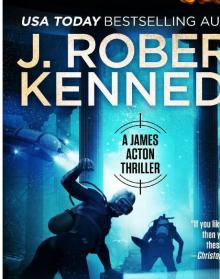 Atlantis Lost
Atlantis Lost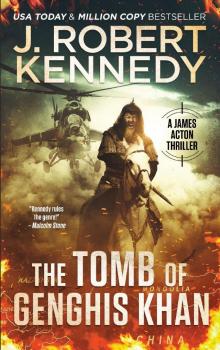 The Tomb of Genghis Khan
The Tomb of Genghis Khan_preview.jpg) Rogue Operator (A Special Agent Dylan Kane Thriller, Book #1)
Rogue Operator (A Special Agent Dylan Kane Thriller, Book #1)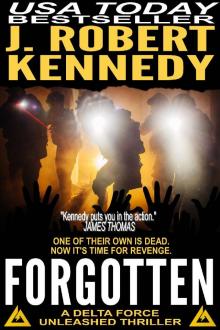 Forgotten
Forgotten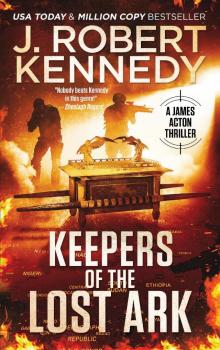 Keepers of the Lost Ark
Keepers of the Lost Ark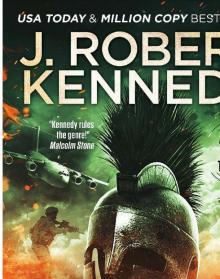 The Cylon Curse
The Cylon Curse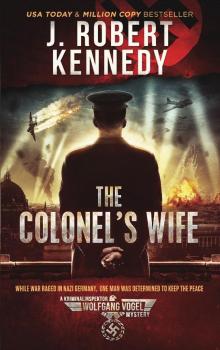 The Colonel's Wife
The Colonel's Wife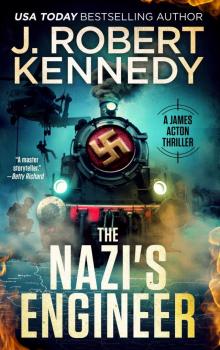 The Nazi's Engineer
The Nazi's Engineer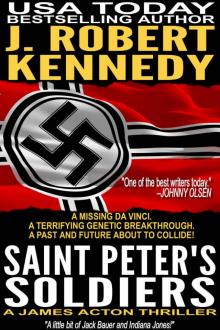 Saint Peter's Soldiers (A James Acton Thriller, Book #14)
Saint Peter's Soldiers (A James Acton Thriller, Book #14)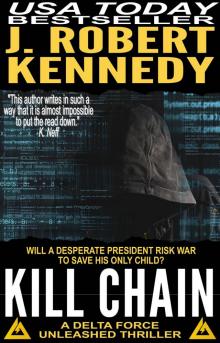 Kill Chain
Kill Chain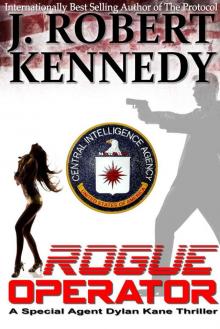 Rogue Operator
Rogue Operator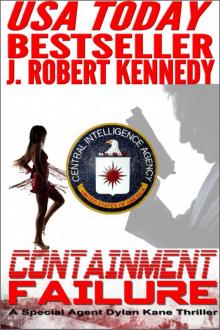 Containment Failure (A Special Agent Dylan Kane Thriller, Book #2)
Containment Failure (A Special Agent Dylan Kane Thriller, Book #2)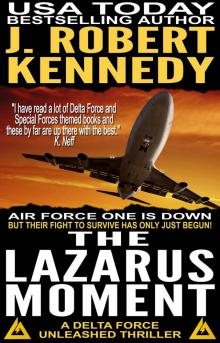 The Lazarus Moment
The Lazarus Moment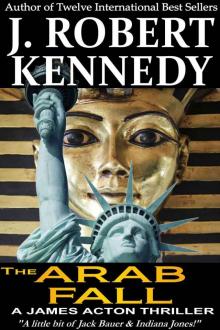 The Arab Fall (A James Acton Thriller, Book #6) (James Acton Thrillers)
The Arab Fall (A James Acton Thriller, Book #6) (James Acton Thrillers) Payback
Payback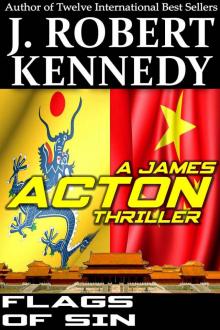 Flags of Sin - 05
Flags of Sin - 05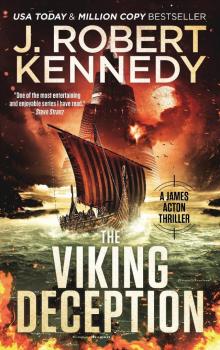 The Viking Deception
The Viking Deception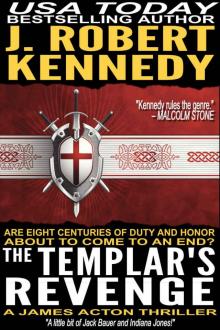 The Templar's Revenge (A James Acton Thriller, #19) (James Acton Thrillers)
The Templar's Revenge (A James Acton Thriller, #19) (James Acton Thrillers)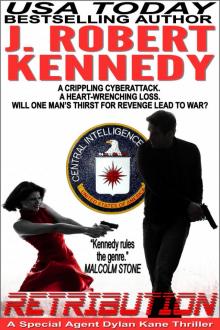 Retribution - A Special Agent Dylan Kane Thriller Book #7
Retribution - A Special Agent Dylan Kane Thriller Book #7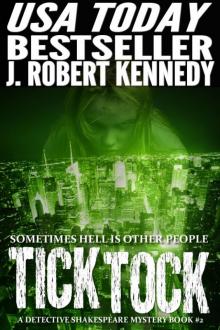 Tick Tock (A Detective Shakespeare Mystery, Book #2)
Tick Tock (A Detective Shakespeare Mystery, Book #2)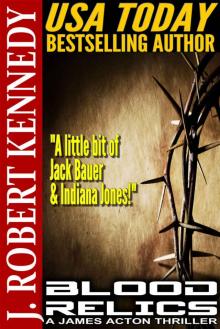 Blood Relics (A James Acton Thriller, #12)
Blood Relics (A James Acton Thriller, #12)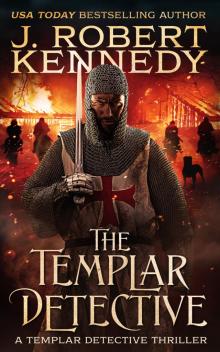 The Templar Detective
The Templar Detective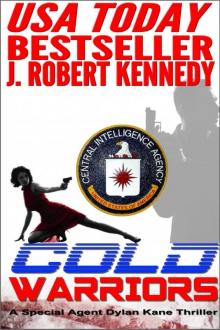 Cold Warriors (A Special Agent Dylan Kane Thriller, Book #3)
Cold Warriors (A Special Agent Dylan Kane Thriller, Book #3)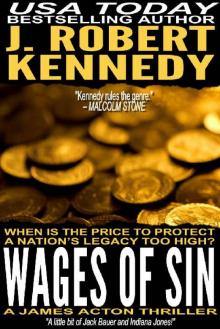 Wages of Sin (A James Acton Thriller, #17) (James Acton Thrillers)
Wages of Sin (A James Acton Thriller, #17) (James Acton Thrillers)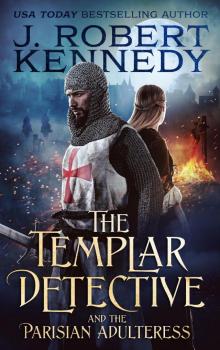 The Templar Detective and the Parisian Adulteress
The Templar Detective and the Parisian Adulteress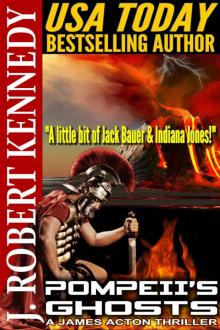 Pompeii's Ghosts (A James Acton Thriller, #9)
Pompeii's Ghosts (A James Acton Thriller, #9)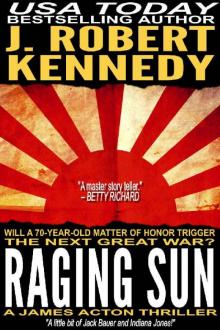 Raging Sun (A James Acton Thriller, #16) (James Acton Thrillers)
Raging Sun (A James Acton Thriller, #16) (James Acton Thrillers)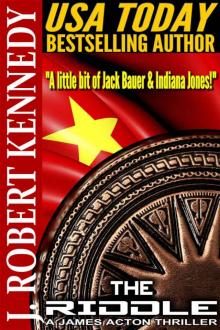 The Riddle (A James Acton Thriller, Book #11)
The Riddle (A James Acton Thriller, Book #11)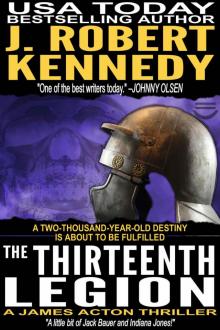 The Thirteenth Legion (A James Acton Thriller, #15) (James Acton Thrillers)
The Thirteenth Legion (A James Acton Thriller, #15) (James Acton Thrillers)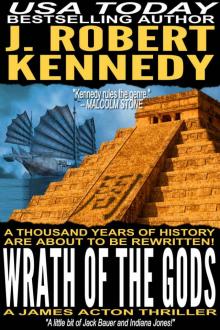 Wrath of the Gods (A James Acton Thriller, #18) (James Acton Thrillers)
Wrath of the Gods (A James Acton Thriller, #18) (James Acton Thrillers)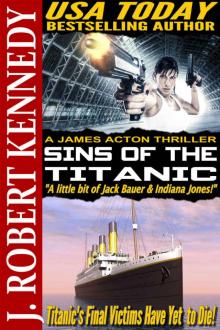 Sins of the Titanic (A James Acton Thriller, #13)
Sins of the Titanic (A James Acton Thriller, #13)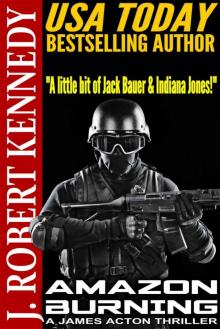 Amazon Burning (A James Acton Thriller, #10)
Amazon Burning (A James Acton Thriller, #10)